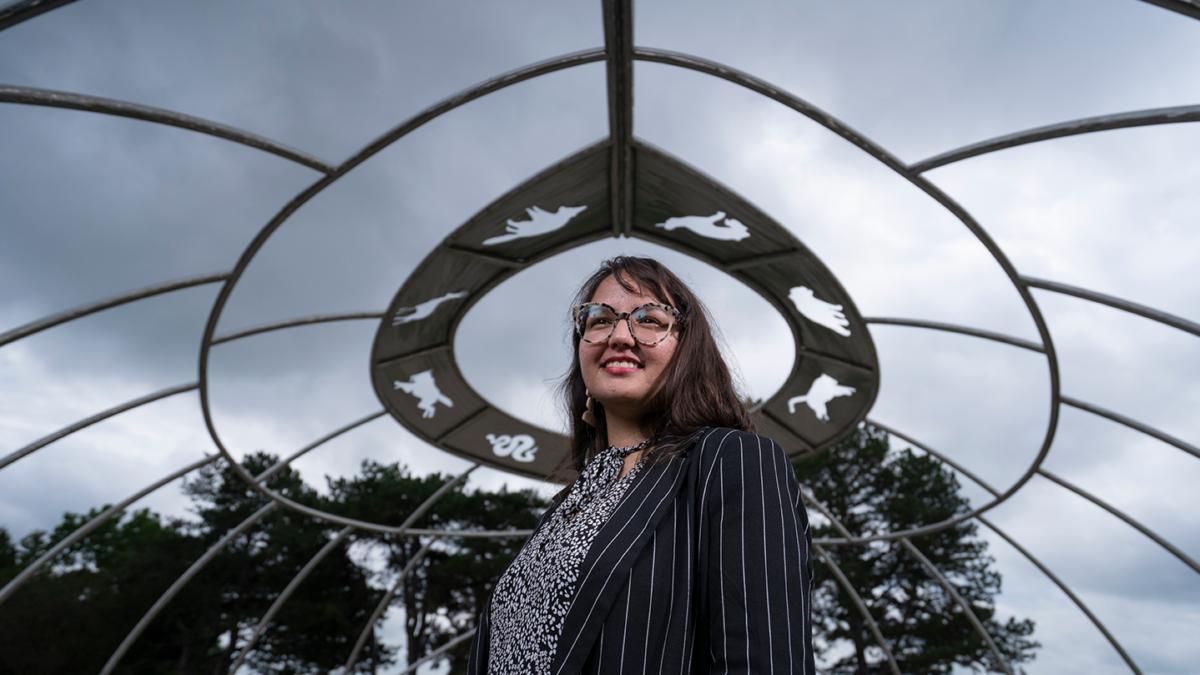“If you Google me, you might see some angry photos of me protesting pipelines in the past,” laughs Kaella-Marie Earle, who is now a proud supporter of the energy industry across Canada.
Earle, 28, whose mother is a member of Aroland First Nation and father hails from Wiikwemkoong unceded Territory in Northern Ontario, recalls how it was the offer of a co-operative education placement during her undergraduate engineering program at Laurentian University in Sudbury that changed her mind on the role energy can play for not just Indigenous people in Canada, but all Canadians.
During her co-op interview with Enbridge Gas, she experienced a personal turning point when she was asked where she saw herself in five-years’ time.
“Without thinking, I said that in five years that I would be an active part of helping define what a transition to a low carbon economy means to industry,” says Earle.
“I surprised myself with that answer given my activist history, but it was something I truly believed – and that was my turning point.”
She describes how during that co-op term she hosted numerous cultural events for the region and led the district’s first National Indigenous Day celebrations, which led to a moment of clarity for her.
“I was asked by someone: What good does all this sharing do to help Indigenous people? I responded that just having a room full of people hearing our Indigenous experience and stories of trauma has been life-changing – for good.”
Earle describes the impact of that first co-op term, where she felt that she had accomplished more at Enbridge in those four months than her entire history as an anti-pipeline activist.
“I found myself in an industry that truly cares about listening to Indigenous people, truly cares about changing to address climate change, and is ready to hear from different people on how to do it so everyone benefits,” she says.
But she has used her activist motivation to help change perspectives on development in Canada. She believes the energy industry and Indigenous people must build partnership with each other as both groups need vital things that either party can provide to one another.
“Indigenous people need the capacity and business opportunity that energy can provide, and energy needs the culture that Indigenous people bring to the table in order to change the way it operates to address climate change,” she says.
This innovative and fresh perspective is why she was chosen to be a part of the Canadian Energy Regulator’s inaugural Indigenous Advisory Committee.
“I was shocked when I got the call to be a part to join this committee – I’m only a baby engineer,” says Earle, who just graduated with her chemical engineering degree this spring.
The committee will serve as an advisory of Indigenous people across Canada to the CER’s board of directors who will seek its advice on how to shape strategy related to integrating Indigenous rights and interests into its work and processes.
I found myself in an industry that truly cares about listening to Indigenous people, truly cares about changing to address climate change, and is ready to hear from different people on how to do it so everyone benefits.
The advisory board was established this month and is slated to meet for the first time in September. It has broad geographic representation from across Canada as well as cultural representation from all three Indigenous peoples of Canada – First Nations, Metis, and Inuit.
The committee’s contribution “will be key to transforming the CER’s relationship with Indigenous people in Canada,” board chair Cassie Doyle said in a statement.
Earle is excited to share her ideas on this national stage for how Indigenous communities and industry can work together in a much more streamlined environment of transparency and on-demand information access. She dreams of a new data bank where project proponents, Indigenous communities, and regulators can share information and update project progress.
“The Canadian energy industry has the capacity and talent to be as out-of-the-box-innovative and interesting as Apple or Google, so what’s stopping us?”
